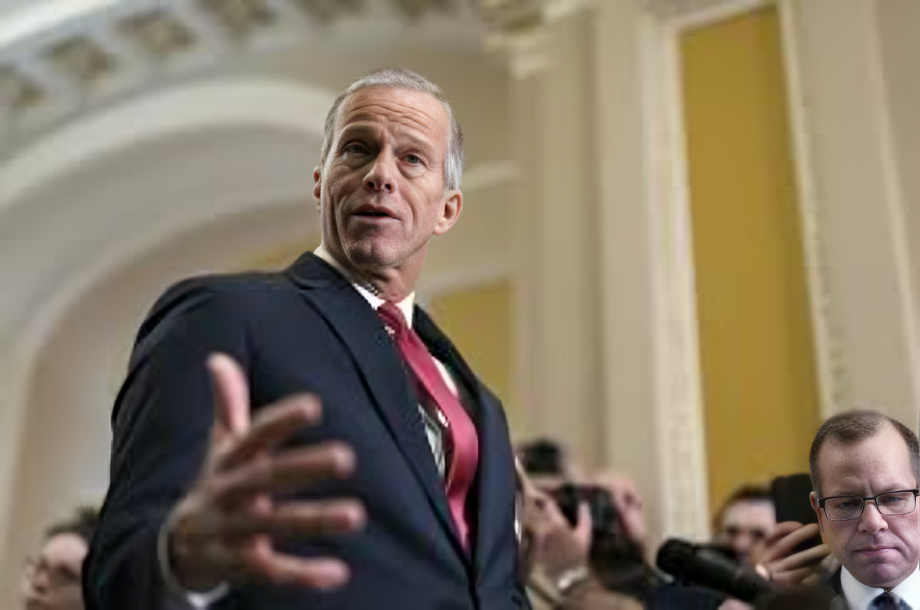Stephen Miller is a name that has been frequently mentioned in political circles, especially during his time in the Trump administration. Known for his hardline stance on immigration and his deep involvement in shaping U.S. immigration policies, Miller has been a controversial figure in American politics. His influence in crafting some of the most divisive policies of recent years has sparked debates among politicians, media, and citizens alike. In this article, we will explore who Stephen Miller is, his rise in politics, his key policy positions, and the controversies that surround him.
Who is Stephen Miller?
Stephen Miller is an American political figure and former senior advisor to President Donald Trump. Born on August 23, 1985, in Santa Monica, California, Miller grew up in a Jewish household. He attended Duke University, where he earned a degree in political science. Miller’s career trajectory began early when he interned for U.S. Senator Jeff Sessions, a position that helped him forge strong connections with individuals who would later play key roles in his political journey.
Miller first gained national attention in 2016 during the presidential campaign of Donald Trump. His sharp rhetoric and staunch conservative views on issues like immigration resonated with Trump and his supporters, leading to Miller’s appointment as a senior advisor in the Trump administration.
Stephen Miller’s Role in the Trump Administration
Miller’s Influence on Immigration Policy
Stephen Miller is perhaps most well-known for his influence over U.S. immigration policy during the Trump administration. Miller’s hardline views on immigration made him a key architect of many of the administration’s controversial policies. Some of these include the infamous “zero-tolerance” policy, which resulted in family separations at the U.S.-Mexico border, and the travel ban that targeted several predominantly Muslim countries.
Miller pushed for stricter immigration laws, believing that illegal immigration posed a threat to American security and culture. He was an ardent supporter of building a wall on the southern border and reducing the number of legal immigrants entering the country. His vision of immigration reform emphasized merit-based systems and a reduction in refugee admissions.
The Travel Ban and Family Separation Policy
One of Miller’s most controversial contributions to Trump’s immigration policy was the 2017 executive order that banned travel from several predominantly Muslim countries, including Syria, Iran, and Libya. Human rights groups and foreign governments widely criticized the order, seeing it as discriminatory and harmful to America’s international relations.
In addition, Miller’s support of the “zero-tolerance” immigration policy resulted in the separation of families at the U.S.-Mexico border. Officials took children from their parents, and the government faced backlash for treating vulnerable individuals seeking asylum inhumanely. They later reversed the policy, but the Trump administration had already suffered damage to its reputation.
Immigration Policy: Miller’s Vision and Legacy
Stephen Miller’s vision for immigration reform focused on reducing the number of immigrants entering the U.S. annually. He was a vocal advocate for cutting back on refugee admissions, supporting the idea of prioritizing skilled workers over individuals seeking asylum. He believed that the U.S. should implement more stringent vetting processes for immigrants and tighten up visa programs.
Miller’s advocacy for a merit-based immigration system was evident in his backing of various proposals to limit the number of immigrants who could obtain permanent residency or citizenship. His views on immigration were often at odds with those of more moderate Republicans and Democrats, who argued for more compassionate policies that took into account humanitarian concerns.
Stephen Miller’s Controversies
Racism Allegations and the Influence of White Nationalism
Critics have accused Stephen Miller of racism and ties to white nationalist groups during his tenure in the Trump administration. Many critics point to his immigration policies as evidence of his efforts to uphold racist ideologies. In particular, his views on immigration—especially his stance on reducing the number of non-white immigrants entering the U.S.—have sparked claims of racial discrimination.
Miller’s critics argue that his policies stem from a fear of demographic change and disproportionately target non-white populations. Leaked emails from Miller to Breitbart News, a right-wing website, further fueled accusations that he sought to promote white nationalist views. In these emails, people claim that Miller expressed concern over the growing number of non-white immigrants and advocated for policies that would keep America “white.”
The Controversial Leaked Emails
In 2019, someone leaked a cache of Miller’s emails from his time in the Trump administration to the Southern Poverty Law Center (SPLC). The emails contained communications between Miller and journalists at Breitbart News, in which Miller allegedly expressed his support for racist and xenophobic views.
The emails raised alarms about Miller’s connections to far-right ideologies and white nationalist groups. The controversy surrounding the leaked emails prompted calls for Miller’s resignation, with many questioning whether his views were consistent with the values of a diverse and inclusive society.
Criticism from Within the Trump Administration
While Stephen Miller was a close advisor to President Trump, his hardline policies on immigration were not always popular within the administration. Some senior officials reportedly grew frustrated with Miller’s uncompromising stance on issues like family separation and the travel ban. However, Miller’s close relationship with Trump allowed him to maintain his position despite the growing opposition to his policies.
Miller’s critics within the Trump administration often described him as being more ideologically driven than pragmatic. Many saw his tendency to push for controversial policies without considering their practical implications as a major source of tension within the White House.
The Public’s Perception of Stephen Miller
A Polarizing Figure in American Politics
Stephen Miller’s legacy is deeply polarizing. For many conservative Americans, Miller is a hero who fought to protect the country from illegal immigration and upheld traditional American values. Supporters of Miller’s policies argue that his actions were necessary to secure the U.S. border and protect American citizens from crime and terrorism.
On the other hand, critics view Miller as a divisive figure whose policies exacerbated racial tensions and violated human rights. Many see the separation of families at the border and the travel ban as symbols of Miller’s disregard for the values of compassion and inclusivity that are central to American identity.
Public Protests and Backlash
Stephen Miller has faced significant public backlash throughout his political career. Protests against his immigration policies were common during his time in the Trump administration, particularly in response to the family separation policy and the travel ban. Many Americans took to the streets to demand more humane treatment of immigrants and refugees, and Miller became a frequent target of their anger.
Despite the protests, Miller remained steadfast in his beliefs, continuing to advocate for policies that aligned with his vision of America’s future. His resilience in the face of public opposition only seemed to bolster his reputation among conservative supporters, while further deepening the divide between him and his critics.
Stephen Miller’s Post-Trump Career
What’s Next for Stephen Miller?
Since leaving the Trump administration in January 2021, Stephen Miller has continued to be active in conservative politics. He has worked to promote right-wing causes through his organization, America First Legal, which focuses on defending and advancing the policies of the Trump administration. Miller’s organization participates in legal battles over immigration policies, and he remains a vocal critic of the Biden administration’s approach to border security.
Though Miller’s public profile has somewhat diminished since Trump’s departure from office, he continues to be a significant figure in conservative circles. His work with America First Legal and his continued support for stricter immigration policies suggest that Miller has not finished shaping the future of American politics.
Legacy and Influence
Stephen Miller’s legacy is likely to be a subject of debate for years to come. His influence over immigration policy during the Trump years was profound, and his views on race, nationalism, and American identity have left an indelible mark on the national discourse. While some view him as a patriot who fought to protect American interests, others see him as a symbol of division and intolerance.
As America continues to grapple with issues of immigration, race, and national identity, figures like Stephen Miller will continue to influence the conversation. Whether people will remember his policies as a necessary response to national security threats or as an unfortunate chapter in American history remains to be seen.
FAQs
Q: What is Stephen Miller known for?
A: Stephen Miller is best known for his role as a senior advisor to President Donald Trump, where he played a key role in shaping the administration’s immigration policies, including the travel ban and the family separation policy.
Q: Was Stephen Miller involved in the Trump administration’s immigration policies?
A: Yes, Stephen Miller was one of the chief architects behind many of the Trump administration’s controversial immigration policies, including the zero-tolerance policy, the travel ban, and efforts to reduce the number of refugees and legal immigrants.
Q: What are some controversies surrounding Stephen Miller?
A: Stephen Miller has been criticized for his ties to white nationalist groups and his support for policies that many view as racist and discriminatory. The leaked emails from Miller also sparked significant controversy, with accusations that he promoted xenophobic and anti-immigrant rhetoric.
Q: What is America First Legal, and how is Stephen Miller involved?
A: America First Legal is a conservative legal organization founded by Stephen Miller after he left the Trump administration. The organization aims to protect the policies and values of the Trump administration, particularly in areas like immigration.
Q: Is Stephen Miller still active in politics?
A: Yes, Stephen Miller remains an influential figure in conservative politics, continuing his work through America First Legal and advocating for stricter immigration policies.
Conclusion
Stephen Miller’s tenure in American politics, particularly during the Trump administration, featured both influence and controversy. As a key architect of the administration’s hardline immigration policies, Miller played a central role in shaping many of the most debated aspects of the country’s approach to immigration, national security, and race. His advocacy for restrictive immigration measures, such as the travel ban and the family separation policy, has made him a highly polarizing figure.
While some view Miller as a staunch protector of American values and a necessary voice against illegal immigration, others see him as emblematic of a divisive and discriminatory approach to national policy. The leaked emails and accusations of his ties to white nationalist groups have only added to the criticism, positioning him at the center of national debates over racism and xenophobia in political discourse.
Post-Trump, Stephen Miller continues to exert influence within conservative circles, particularly through his work with America First Legal. His legacy, still under review, will likely remain a topic of debate for years to come, as it challenges the very nature of American identity, immigration reform, and national unity.
Whether one agrees or disagrees with his policies, Stephen Miller’s impact on U.S. politics is undeniable, making him a figure worth watching as he continues to shape future political landscapes.



